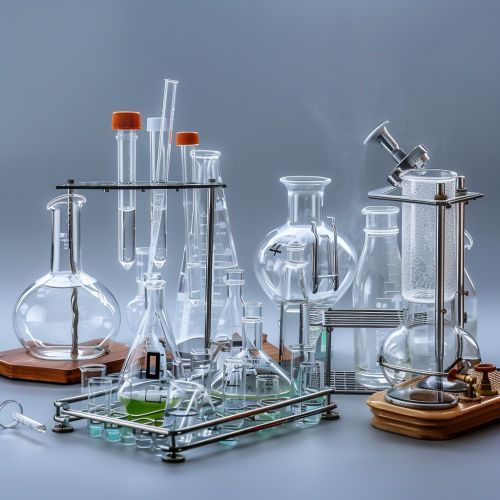Resolution (chemistry)
Introduction
In the realm of chemistry, the term "resolution" refers to the process of separating a mixture of compounds into its individual components. This is often achieved through a variety of techniques such as chromatography, crystallization, and distillation. The process of resolution is a cornerstone in the field of chemistry, particularly in the areas of analytical chemistry and synthetic chemistry, where it plays a critical role in the identification, study, and creation of chemical compounds.


History
The concept of resolution in chemistry has a long history, dating back to the early days of the science. The first recorded instances of resolution were in the form of simple distillation processes, used by ancient civilizations such as the Egyptians and Greeks to produce perfumes and spirits. Over time, as our understanding of chemistry evolved, so too did the methods of resolution, leading to the development of more sophisticated techniques such as chromatography and crystallization.
Techniques of Resolution
Chromatography
Chromatography is a widely used technique for the resolution of mixtures in chemistry. It involves the separation of a mixture by passing it in a solution or suspension through a medium in which the components of the mixture move at different rates. This technique is used extensively in both analytical and preparative chemistry, and it has a wide range of applications, from the analysis of organic compounds to the purification of proteins.
Crystallization
Crystallization is another common method of resolution. It is a process that involves the formation of solid crystals from a homogeneous solution. It is used to obtain a crystalline solid of a substance from its solution, to purify a solid substance, to remove a solid impurity from a solution, or to obtain a substance in a pure state from a mixture.
Distillation
Distillation is a process that involves the heating of a liquid mixture to create vapor, and then cooling that vapor to create a liquid. The purpose of distillation is to separate a particular substance from a mixture based on differences in boiling points. This technique is commonly used in the purification of liquids and the separation of mixtures of liquids.
Applications of Resolution
Resolution techniques are used extensively in a variety of fields. In pharmaceutical industry, resolution is used in the production of pure drug substances. In environmental science, these techniques are used to analyze samples for the presence of pollutants. In forensic science, resolution can be used to identify substances found at crime scenes.
Future Directions
The field of resolution in chemistry continues to evolve, with new techniques and methodologies being developed regularly. Advances in technology are allowing for more precise and efficient resolution processes, which in turn are opening up new possibilities in the study and application of chemistry.
